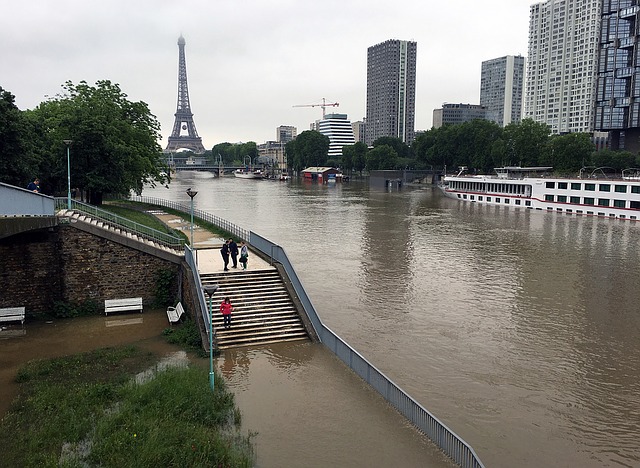Climate change will increase river floods in most regions of Europe, EEA warns
- December 18, 2019
- Posted by: administrator
- Category: Environmental, Water Issues, Europe

New analysis by the European Environment Agency (EEA) is warning that climate change is set to increase the occurrence and frequency of once-in-a-century river floods in most regions of Europe.
Annual river floods increased in north-western and parts of central Europe but decreased in southern and north-eastern Europe over the period 1960-2010 because of climate change, the EEA says. Future climate change is projected to increase the occurrence and frequency of once-in-a-century river floods in most regions of Europe, with the exception of parts of northern Europe, southern Spain and Turkey. Pluvial floods and flash floods, which are triggered by intense local precipitation events, are likely to become more frequent throughout Europe.
Climate change could triple direct damages from river floods in 21st century under a high-emissions scenario
According to the EEA, river floods are among the most damaging extreme climate events in Europe.
Under a high-emissions scenario, climate change could triple the direct damages from river floods during the 21st century in the absence of additional adaptation measures.
Specifically, river floods increased in northwestern and parts of central Europe, caused by increasing autumn and winter rainfall; decreased in southern Europe, caused by decreasing precipitation and increasing evaporation; and decreased in northeastern Europe, caused by decreasing snow cover and snowmelt.
The EEA analysis is based on the European Flood Database, which is currently the most complete database on flooding available for Europe to date. The figure and the underlying analysis shows that climate change has both increased and decreased river floods in Europe.
Climate change has also affected the timing of annual floods – the changes include:
- spring snowmelt floods in northeastern Europe occurring earlier
- winter floods around the North Sea and parts of the Mediterranean coast occurring later owing to delayed winter storms
- winter floods in western Europe occurring earlier caused by earlier soil moisture maxima
Another analysis using the same flood database suggests that it now happens more often that various neighbouring river basins are flooded at the same time, which can create new challenges for flood risk management.
The Agency said that flood events have resulted in over 4,300 fatalities and caused direct economic losses of more than EUR 170 billion (based on 2017 values) in EEA member countries over the period 1980–2017.
The losses are almost one-third of the damage caused by all natural hazards; less than a quarter of them were covered by insurance. A shift from a purely technically oriented flood defence toward a more integrated flood risk management system that also considers non-structural measures to minimize adverse effects of flooding has led to more effective flood management and to a substantial reduction of the damage caused by the 2013 floods in Germany, compared to the 2002 floods.
Model studies of the socio-economic impacts of river floods conducted by the Joint Research Centre (JRC) suggest that future climate change will increase population affected and economic damages from floods in almost countries in Europe.
The strongest increase in flood risk is projected for countries in western and central Europe, such as Austria, Hungary, Slovakia and Slovenia.
Click here for more information about the EEA analysis.
